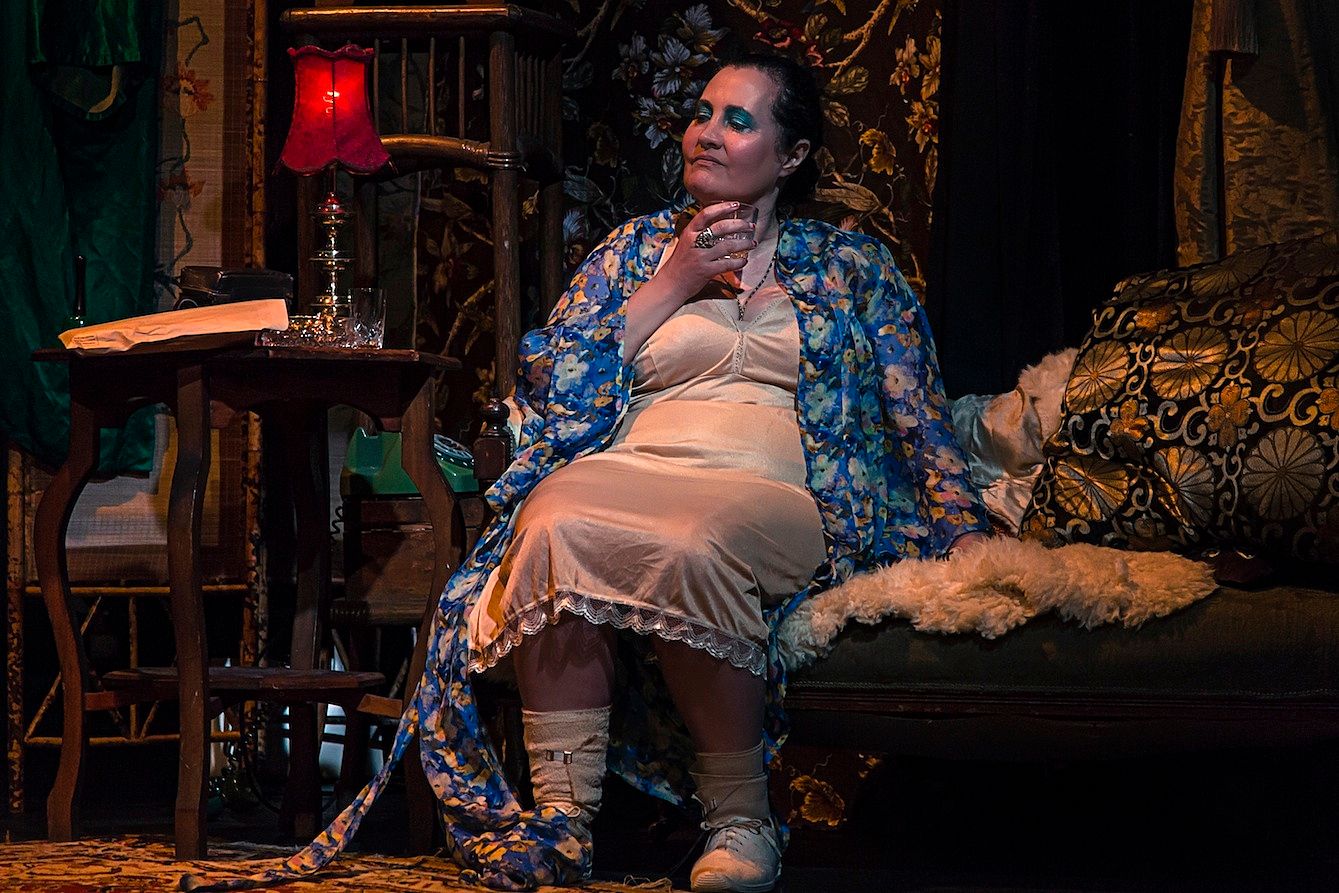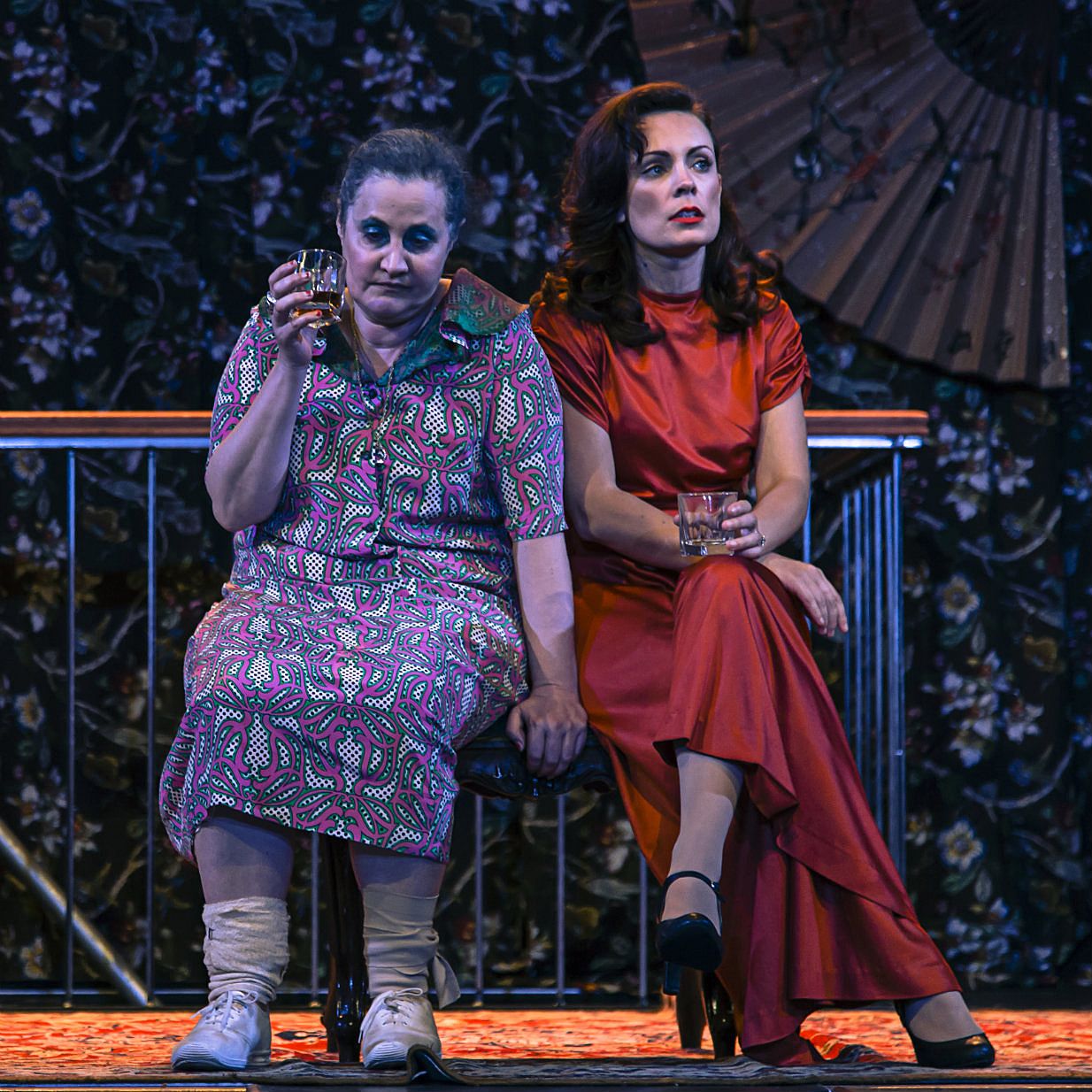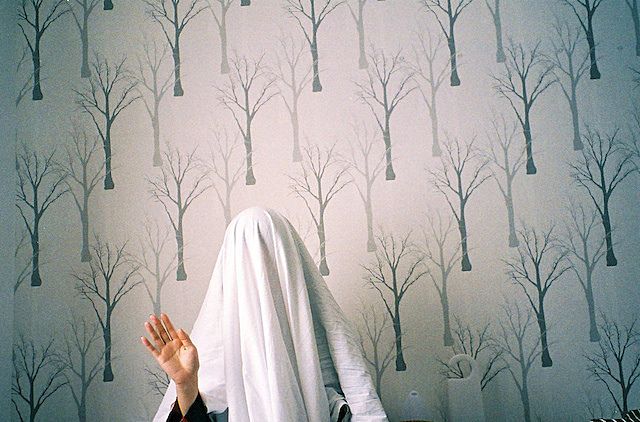Review: Famous Flora
Famous Flora is a missed opportunity to explore the evolving politics of sex work, writes Jess Bates.
Famous Flora is a missed opportunity to explore the evolving politics of sex work, writes Jess Bates.
I have never before been to a strip club, and I think I may have outgrown the brief electricity that surrounded the idea. At the time I felt it, I would have framed my excitement as a response to glittering ‘post-feminist potential’. I since might say it was something much more ordinary and voyeuristic. As I ascend the stairs to The White House to see a piece of theatre, I can feel that familiar naïve tourist rising once more. There is a hubbub at the ticket desk; punters like me are consumed in the heady mix of feeling fabulous and filthy, all at the same time.
We are all here to see Famous Flora, Elisabeth Easter’s earnest attempt to “remember well” the notorious madam of Ring Terrace, Ponsonby, who has since become mythology in Auckland's entertainment history. The delicious marketing ploy of locating the story at this nexus of Western cultural cringe, The White House, has worked a treat. The audience seem delighted to participate in this edgy exchange, soaking up the lush interior, the grandiose architecture (from a former life as a Theosophical society) and the hilariously overpriced Heineken.
This kind of site-specific theatre is a fascinating proposal, and the languid beginning of the show, featuring a couple of casual cabaret numbers which are drowned in applause, suggest this opening night crowd is gagging to have their senses titillated, and their morality skewed by their surroundings.
The story follows Flora, an audacious and pragmatic young woman at the height of WWII, running a brothel on Ring Terrace in Ponsonby. Whilst financially lucrative, it is also an business that fell into her lap unsolicited. Her story is one of heartbreak, legal persecution and booze (liquor from the on-stage bar punctuates almost every scene).
The audience meets two Floras – the one played by an austere Kate Elliot, grappling with the heady social power of Auckland’s most notorious brothel, and the other a charming and earthy drunk, forty years on (played by Yvette Parsons). The story flicks us forward and back between these two time periods and characterisations. This continuity of character from one actor’s body into another is the vital device of story, but this is the work’s first stumbling block, as our two protagonists become only more irreconcilable as the play progresses.
Parsons plays Flora with an effortless localism - she might have wandered out of Myers Park to hurl her slurred quips into the audience, mooning police officers out the window of the theatre, and offering a bit of “slap and tickle” to the passers-by. Every time she staggers out “cunts all flapping in a line,” or a number of other abrasive colloquialisms, we are all the more delighted by her loveable bawdy. Her entire body is relaxed in performance, and her nasal vowels throw up a deliciously recognisable icon: the kiwi drunk. This Flora flouts social mores both as a matter of inebriation and life experience, as she so eloquently summarizes: “fuck the public.”
By contrast, Elliot presents an abrasive characterisation; a Flora with a tightly-zipped physicality, a short fuse, and a changeable whimsy. She seems at the epicenter of a whirlwind cultivated more by Elliot’s shrill anxiety than the gravity of the events unfolding. Beautiful moments emerge when the audience is included - when Elliot gazes at us in horror because there are so many “unchaperoned ladies” to hide from prying parental eyes, for instance. She commands the space, and her energy is unrelenting, but director Ben Crowder’s character choices should here be called into question. Elliot adopts an affected British accent, which is at odds with her ‘Mangere’ upbringing, and a fierce delivery which lacks a certain sensitivity to the tragic events that unfold. I longed to see something vulnerable amongst all that severity, which might have helped bridge the irreconcilable differences between Flora young and Flora old.
This disparity between the two representations becomes a sticky problem for the work. There is a gorgeous use of space and sound, as the actors thrust and thread through the audience, there is opportunity for visceral engagement on both sides. In fact, the work is at its most vibrant when we are completely immersed, when the cast work as an instrument-wielding ensemble, where accordions accompany trombones, gongs go off, and there is a flurry of bodies up and down the staircase. But even with Crowder’s deft use of staging in the round and scene collision, the work cannot afford the key emotional deficit – the audience cannot follow Flora’s tale unless we can reasonably believe that Parsons and Elliot play the same person.
There are however, some delightfully curated distractions. Kip Chapman, as the indulgent Lawrence (Flora’s loyal and camp companion) is a charming antidote to some scriptural blind-spots in the first half, at one point scaling a pole – and his comic timing keeps a lovely pace to a text which at times struggles to make clear sense of a story. ‘Storytelling,’ however, is part of what these characters are so invested in. Fabulous ensemble energy is generated where stories are retold by characters, for characters, memorably ring-led by a vivacious and playful Alice, played by Jess Sayer.
As an audience member I work desperately not to simply contrast two representations of the same woman, and I think that the critical discussion should consist of more than simply an unflattering act of comparison. But in it’s current form the text cannot escape this problem. At the moment that the two share a drink on stage, their two bums parked side by side, with little ceremony in the meeting, I am unable to do anything else.
As one of history’s seductive creatures, Flora’s conflicted exploits are entertaining on stage, but the script is a somewhat idle handling of what could be an interesting departure point for discussion. Flora’s justification for her brothel is wide-ranging, it is both something that fell into her lap, and a necessary social service – “their children would go hungry.” The more exciting conversation, both historically and presently, surely lies around prostitution not as an act of necessity, but as an act of volition. We are sitting in a brothel as we watch this story, and Flora’s good financial fortune seems to have emerged from a basic act of miscommunication. The sailors simply didn’t realize “the girls were giving it away for free.” In a country where solicitation has been decriminalized, I think there is a very real opportunity for a later incarnation of Famous Flora to have an exciting relevance, as both an act of ‘memory’ and an opportunity to ask questions of the audience.
As we descend the front steps, my companion comments on what he calls the “fuzzy, sticky aura” of the place, and I can’t help thinking this grey moral turf is a missed opportunity in Famous Flora. As Flora puts it herself, the whole story is a “flaming eulogy” – but there is more to be teased out of this entertaining, energetic tale.
Famous Flora plays at The White House
from 13-29 November
Tickets available through iTicket


